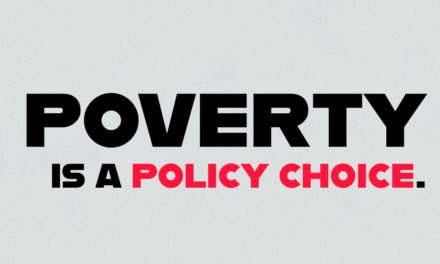In the coming days, this blog will be posting resolutions, predictions, or observations by Memphians as they look ahead to the new year.
David Ciscel, Professor Emeritus in Economics, University of Memphis:
What’s Ahead for 2019?
Let’s not expect too much out of 2019! Sure, Memphis is on a small roll. There is finally momentum in the area of economic development. Clearly, the thrust to build a city where density is a key topic has taken hold. Both mayors seem to be genuinely interested in tackling some of the big problems associated with the regional stagnant economy. But, to reiterate, let’s not expect too much out of 2019.
First, and most importantly, the United states is coming to the end of a long expansion. Since the bottom of the Great Recession, the U.S. economy has been climbing steadily uphill. The Memphis regional economy has not grown as quickly or as successfully as the U.S. economy, but as the U.S. economy falters in 2019, the Memphis economy will also tend to stagnate. There is no indication that the regional economy is stronger that the U.S. economy as a whole.
Second, while there are huge poverty problems in the regional economy, the two mayors have wisely picked smaller issues to address this problem. Regional mass transit is important in the long run and can be effectively addressed at the local level. Reform of treatment of young people who offend the criminal justice system may result in more young males joining the skilled labor market. Increasing urban density through promotion of new living arrangements and through deannexation are important steps to redefining the city. But none of these things touch the core of urban poverty in Memphis. We distribute income poorly in the U.S. That is not a Memphis issue. Education is the way out for some individuals, but education is not the solution. Until the nation decides to address the issues of income distribution by occupation and region, there will be large pockets of poverty here.
Third, the experience of the last few years indicates that the Memphis regional economy is doing the best that it can with its limited resources. At the end of 2012, there were 620,000 workers in the Memphis economy – almost 54,000 were unemployed (8.7%). By the end of 2017, the labor force had grown to only 635,000 workers – but now 23,000 were unemployed (3.7%). And while the City of Memphis has population problems, the numbers of employed workers in the City has grown and proportion of the regional economy in the City has remained constant. That is, the City has remained a viable economic component of the regional economy. The numbers for 2018 are not yet in, but the experience through October, 2018, indicates that this past year has not seen any exceptional bad or good changes.
In 2012, there were significantly more workers than jobs in the economy. At the end of 2017, there were many more jobs than workers. Though part-time jobs probably account for a significant portion of the job growth, the regional economy now has employers bidding for employees rather than the other way around. But the distribution of jobs has not changed very much. All construction and manufacturing jobs account for less than 11% of the jobs here. Service-producing jobs account for almost 90% of all jobs. We are not a region that makes things. I used to say that the Memphis economy arranges for things in big boxes to be put in smaller boxes and then sold. That has not changed.
Our most successful sectors have remained somewhat constant employers – Retail Trade, Transportation, Warehousing and Utilizes, Hospitality and Staffing Agencies all provide between 10 and 11% of the local jobs now and have for several years. Health and government do a little better in job provision – with Health providing a few more jobs now and government providing a few less than in the past.
Our ship – the Memphis regional economy – is sailing. 2019 will probably see some good work done at the margins – little improvements. But on the whole, what you got in 2017 and 2018 is what will happen in 2019.
We economists are pretty lousy at predictions. We usually miss inflection points – both up and down. But the best bet is that Memphis will remain a full-employment slow-growth economy. And it will remain an economy with a huge poverty problem, a problem exacerbated by its historical racial demographics.






A few baby steps forward if we are lucky. Progress will be small and barely discernible since the national economy has begun a slump that will especially hinder things. We have far too much deep poverty in Memphis that is not going away.
If there is a recession Memphis will be able to weather it better unlike Nashville that has taken on so much debt. I believe having Lang Wiseman, as Bill Lee’s deputy to the governor and chief counsel, is going to help Memphis and Shelby County finally get some tender loving care, because we all know what’s really been going on.